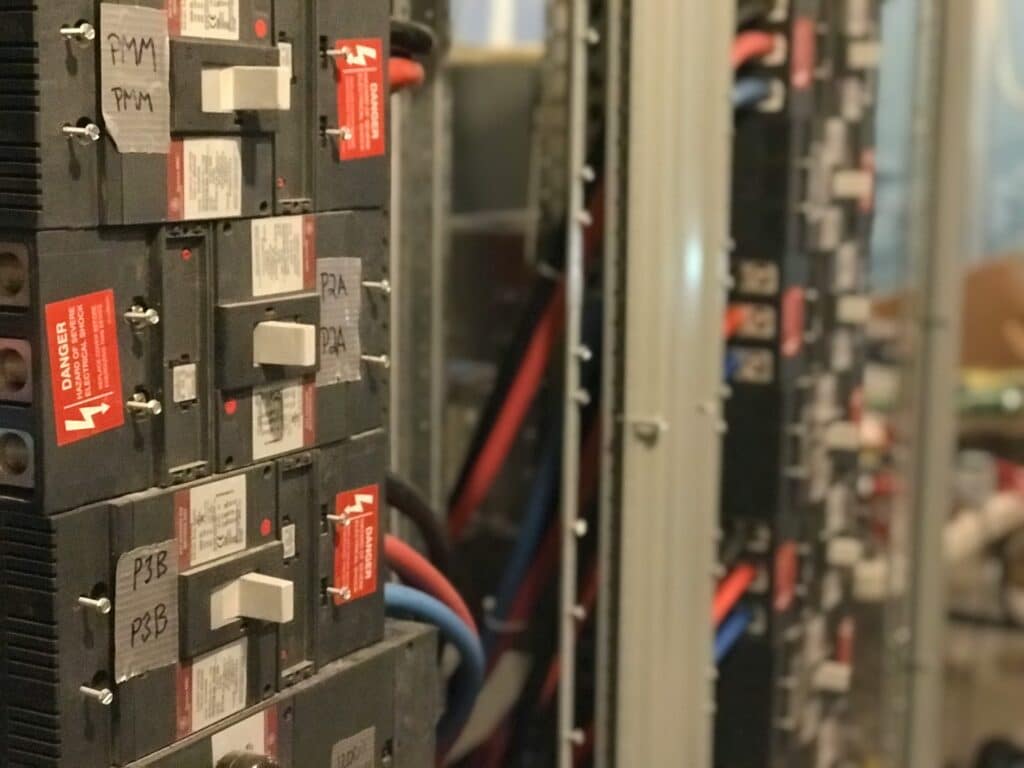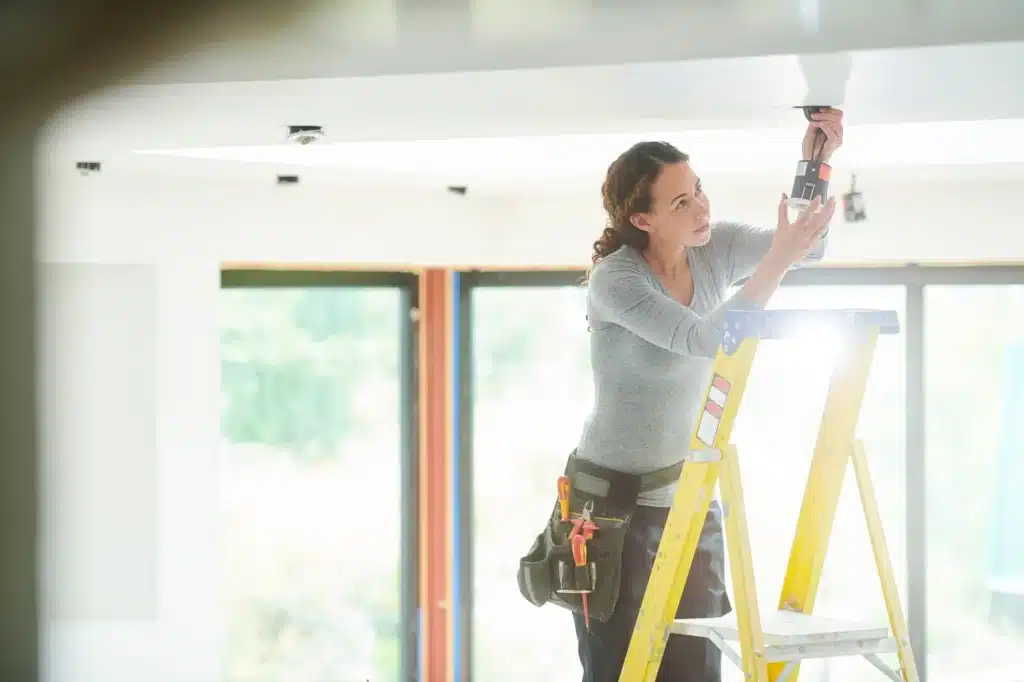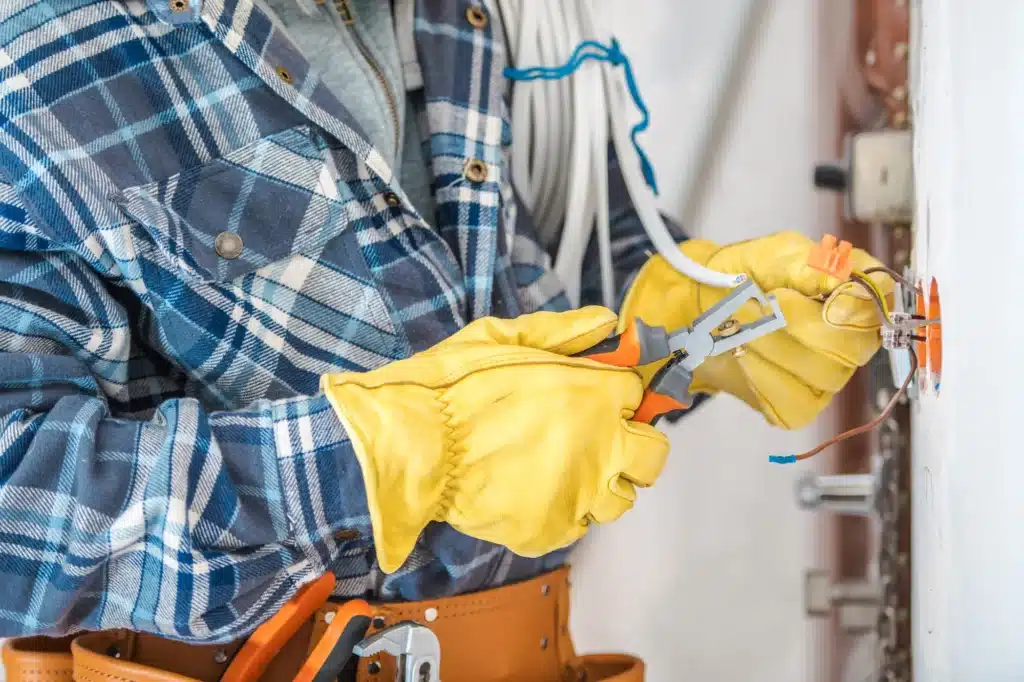
Essential Questions to Ask When Hiring an Electrician for Home Renovations
Hiring a qualified electrician for home renovations is critical, as proper installation and maintenance of electrical systems directly affect the safety, functionality, and overall success of any renovation. Homeowners must navigate many options and verify key credentials to ensure the professional they select can safely handle tasks from upgrading lighting fixtures to installing high voltage systems. This article outlines the essential questions to ask when hiring an electrician, covering areas such as licensing, experience, safety certifications, pricing transparency, code compliance, project timelines, and the benefits of hiring a licensed professional versus a handyman. By understanding the required qualifications and how to assess an electrician’s reliability, homeowners can protect their property and investment.
Each section below provides concise guidance and practical advice, supported by industry best practices and real-world examples. The format is question-based to directly address common concerns for homeowners embarking on electrical renovation projects. This guide explains how to compare quotes effectively, ensure strict safety measures, and verify that every step of the renovation, from the initial inspection to final testing, is performed to a high standard.
Transitioning from the introduction, the following sections break down each critical question area, ensuring all aspects of hiring an electrician are thoroughly evaluated.
What Qualifications and Credentials Should I Verify Before Hiring an Electrician?
Before hiring an electrician for your renovation, verify that they are properly licensed and insured. A valid license confirms that the electrician has met state or local regulatory standards and has completed the necessary training and examinations required for high voltage systems, wiring, and fixture installation. Insurance protects both the homeowner and the contractor against accidental damages or injuries during the project.
Why Is Licensing and Insurance Important for Home Renovation Electricians?
Licensing proves that an electrician has received comprehensive training in both theory and practical work, including tasks like installing dimmers, upgrading circuits, and safely connecting ceiling fans or light fixtures. Liability insurance protects homeowners from financial loss if damages occur during the renovation. Confirming these credentials helps mitigate risks associated with substandard work and potential safety hazards.
How Can I Confirm an Electrician’s Experience With Home Renovations?
Confirm an electrician’s experience by asking for case studies, project portfolios, and client testimonials. Renovations often demand more than basic electrical work; they require an understanding of home layouts, interior design integration, and advanced troubleshooting. An experienced electrician should provide references from projects such as kitchen remodels, bathroom upgrades, or home automation installations, along with before-and-after photos that demonstrate their ability to integrate new systems into existing structures.
What Safety Certifications Should an Electrician Have?
In addition to licensing, look for safety certifications from organizations like the National Fire Protection Association (NFPA) or OSHA. These certifications indicate that the electrician follows current safety protocols, which is particularly important during major renovations where structural changes may expose new risks or require compliance with updated electrical codes. Such certifications boost technical skills and reassure homeowners that the work will meet high safety standards.
How Do I Assess an Electrician’s Reliability and Professionalism?
Reliability and professionalism are essential when addressing your electrical renovation needs. A professional electrician will complete the project on time, communicate clearly, and adhere to safety protocols. Look for prompt responses, timely arrivals at job sites, and a proactive approach to problem solving.
What Questions Should I Ask About an Electrician’s Work Schedule and Availability?

Ask about the electrician’s current workload and availability. Questions such as “How soon can you schedule an initial inspection?” and “What is your current work capacity?” help determine if they can meet your renovation deadline, a key consideration for time-sensitive projects like kitchen remodels or urgent high voltage repairs. Understanding their schedule also sets realistic expectations for response times and potential delays.
How Important Is Clear Communication During a Renovation Project?
Clear communication prevents misunderstandings and ensures that the electrical work fits within your renovation vision. Ask, “How will you communicate project updates and address my concerns?” Discuss preferred communication channels, phone, email, or a project management portal, and agree on regular update intervals. Consistent, transparent communication minimizes revision requests and streamlines the completion process.
Can I Check References or Reviews to Verify an Electrician’s Reputation?
Request references or check online reviews on platforms like the Better Business Bureau. Ask for at least three references from past renovation projects and confirm details regarding project scope, timeline, and overall satisfaction. Positive feedback, especially regarding installations like ceiling fans, dimmer kits, or complete rewiring, confirms that you are hiring a reputable professional with a proven track record.
What Should I Expect in an Electrician’s Detailed Quote and Pricing?
Before beginning any renovation, obtain a comprehensive, written quote that outlines labor charges, material costs, and any additional fees. A transparent quote demonstrates the electrician’s professionalism and detail orientation. It should cover every aspect of the job, from replacing old wiring to installing new light fixtures, to avoid misunderstandings later.
How Do I Identify Transparent Pricing and Avoid Hidden Fees?
Ask, “How is your pricing structured, and are there any potential hidden fees?” A reliable electrician will provide a fixed-rate quote or a detailed estimate rather than an hourly rate that might fluctuate. Transparent pricing should include an itemized list of materials, labor costs, permit fees, and inspection fees. This clarity prevents unexpected charges due to unforeseen complications with old systems.
What Details Should Be Included in a Written Estimate for Electrical Work?
A written estimate should clearly state the scope of work, including the number of outlets and light fixtures to be installed or replaced, the amount of wiring required, and an estimated project timeline. It should also list any necessary permits or inspections, ensuring that all work complies with local building codes. This comprehensive approach helps prevent disputes and sets clear payment and milestone expectations.
How Can I Compare Quotes From Different Electricians Effectively?
Review multiple detailed estimates, comparing the scope of work, materials proposed, warranty duration, and project timelines. Creating a comparison table can help you quickly identify which electrician offers the best value. Often, a slightly higher price may be justified by a comprehensive warranty or superior materials, demonstrating greater honesty and detailed service.
Which Essential Questions Help Ensure Electrical Code Compliance and Safety?

Ensuring compliance with local electrical codes is non-negotiable. Code compliance reduces risks such as electrical fires, shocks, and hazards. It confirms that the work meets minimum safety requirements through necessary permits and inspections.
How Do I Verify That the Electrician Follows Local Electrical Codes?
Ask directly, “Do you follow local electrical codes, and can you provide documentation of past compliance?” A reputable electrician should supply inspection reports or certifications from local building authorities. You may also verify with your municipality’s website or building permit office. This documentation provides assurance that the work meets established codes and minimizes future system failures.
What Safety Measures Should an Electrician Take During Renovations?
Ask, “What specific safety measures do you implement during a renovation project?” An experienced electrician will discuss the use of personal protective equipment (PPE), proper shutdown procedures, and adherence to lockout/tagout protocols. They should also mention installing ground fault circuit interrupters (GFCIs) in wet areas and marking work zones as hazardous until the project is complete. These measures protect both the electrician and home occupants from potential hazards.
Why Is It Important to Ask About Permits and Inspections?
Permits and inspections are vital to legal and safe electrical renovations. Ask, “Will you obtain the necessary permits, and how are inspections coordinated?” Permits confirm that the work meets local standards, and independent inspections provide an extra layer of quality assurance. Proper permits and inspections also help prevent legal issues and protect your property value.
How Can I Determine the Scope and Timeline of Electrical Work for My Renovation?
A clear project scope and timeline are essential for proper planning and budgeting. Knowing the extent of electrical work helps set realistic expectations for delivery dates, milestones, and any necessary adjustments.
What Questions Should I Ask About the Project Timeline and Milestones?
Ask, “What is the anticipated timeline for the project, and what milestones will you use to track progress?” A detailed schedule should include key phases such as initial assessment, permit acquisition, material procurement, installation, and final inspection. Request estimated start and completion dates and ask for contingency plans in case of unforeseen delays. Clear milestone markers, such as the installation of light switches or wiring completion in specific rooms, help ensure timely communication of progress.
How Do I Clarify the Scope of Work to Avoid Surprises?
Avoid surprises by asking, “Can you provide a detailed scope of work that outlines what is included and what is not?” This document should clearly list all tasks, from new circuit installations to specific wiring materials, and include potential challenges or risks. A comprehensive written scope ensures both parties share a clear understanding of the work, reducing the likelihood of unexpected charges.
What Should I Know About Potential Delays or Additional Costs?
Ask, “What circumstances might lead to delays or extra costs, and how will these be communicated?” This discussion should cover factors such as supply chain issues, structural complications, or additional permit requirements. A reliable electrician will explain any conditions that could incur extra expenses, helping you manage your budget and timeline while building trust through proactive communication.
What Are the Benefits of Hiring a Licensed Electrician Versus a Handyman?
Understanding the difference between a licensed electrician and a handyman is vital. While handymen may handle minor repairs, licensed electricians possess the specialized training and certifications needed for high-stakes electrical work. They also carry liability and workers’ compensation insurance, which protects homeowners from potential damages or accidents.
How Does Licensing Impact Quality and Safety in Electrical Renovations?
Licensing ensures that an electrician has undergone rigorous training and testing in accordance with state and local regulations. This training covers managing high voltage systems, installing circuit breakers, and handling sensitive equipment in key areas like kitchen remodels, basements, or roofs. Licensed professionals are less likely to make costly errors, thereby reducing repair costs and safety risks.
What Risks Are Involved When Hiring Unlicensed Workers?
Hiring unlicensed workers can be risky. Without proper training and certification, unlicensed contractors may not fully understand electrical codes or safety protocols, increasing the likelihood of faulty installations and potential hazards such as fires and system failures. Unlicensed workers typically do not carry liability insurance, meaning any damages or injuries incurred could become your financial responsibility.
Why Is Insurance Coverage Critical for Electrical Projects?
Insurance is essential as it provides financial protection in case of accidents or damage during electrical work. A licensed electrician usually carries both liability and workers’ compensation insurance, ensuring that any harm or damage is covered, thereby protecting your renovation budget and ensuring accountability for professional standards.
How Do I Prepare for the Electrical Renovation Process After Hiring an Electrician?
Proper preparation after hiring an electrician sets the project up for success. This includes understanding the initial inspection process, establishing clear communication channels for ongoing updates, and confirming that the final work adheres to all safety and quality standards.
What Should I Expect During the Initial Electrical Inspection?
During the initial inspection, the electrician evaluates the current electrical system, identifies safety hazards, and determines necessary upgrades or repairs. This assessment includes testing outlets, inspecting circuit breakers, and checking wiring, especially in older homes. The findings help define the project scope, establish a timeline, and set cost expectations while uncovering any hidden issues early.
How Can I Communicate Effectively With My Electrician Throughout the Project?
Establish a regular communication schedule with your electrician through weekly progress reports, scheduled meetings, or digital updates. Ask, “What is the best way for us to communicate during the project?” Agree on a method that suits both parties to ensure any changes or issues are addressed promptly. Consistent updates help keep the project on track and facilitate smooth transitions between phases.
What Are the Final Steps to Ensure Work Quality and Satisfaction?
At the end of the project, conduct a thorough walkthrough with the electrician to verify that all tasks, wiring, fixture installations, and appliance connections, are completed as agreed. Confirm that all permits have been closed out and inspections passed. Request a detailed invoice and warranty information for both labor and materials, and sign off on the work only when completely satisfied. This final review helps address any lingering issues and ensures the renovation meets agreed quality standards.
Frequently Asked Questions
Q: How long should I expect an electrical renovation to take? A: Electrical renovations vary in duration. Smaller tasks, such as updating light fixtures or installing ceiling fans, may take a few hours, while complete rewiring or major system upgrades can take several days or weeks. Always request a detailed timeline from your electrician.
Q: What type of warranty should I look for on electrical work? A: Look for a warranty covering both labor and materials for at least one year. Reputable electricians often offer extended warranties or service guarantees to address issues promptly after installation.
Q: Can I make changes to the electrical plan after work has begun? A: Yes, but discuss changes with your electrician as early as possible. Modifications mid-project can increase costs and delay completion, so ensure all changes are documented in writing.
Q: What should I do if I notice a problem after the work is complete? A: If issues arise after completion, contact your electrician immediately. A professional contractor will offer follow-up services or troubleshooting under warranty terms. Document any problems with photos or videos to expedite resolution.
Q: How can I verify that my renovation meets local electric codes? A: Ask your electrician for copies of permits and inspection reports. You can also verify compliance by contacting your local building department or checking online resources.
Final Thoughts
Hiring an electrician for home renovations requires careful due diligence, from verifying licensing and insurance to understanding project timelines and safety measures. Asking these essential questions protects your investment and ensures that every stage of the renovation is performed with precision and care. With transparent communication and a well-defined scope of work, homeowners can expect safe and efficient electrical upgrades that add value and functionality to their property. Focusing on quality, compliance, and professional reliability fosters a successful renovation experience and results in a safe, efficient, and visually appealing electrical system.
| Indicator | Licensed Electrician | Unlicensed Worker |
|---|---|---|
| Training & Certification | Extensive and verified | Limited or unknown |
| Insurance Coverage | Full liability and workers’ comp | Usually none |
| Code Compliance | Strict adherence to local codes | Varies widely |
| Project Accountability | Detailed written estimates | Informal and unverified |
| Safety Protocols | Comprehensive safety measures | Inconsistent practices |
Before finalizing your decision, compare quotes and verify credentials to ensure the electrician you choose can deliver safe, professional, and high-quality renovations. This careful approach minimizes risks and ensures long-term peace of mind regarding your upgraded electrical system.
